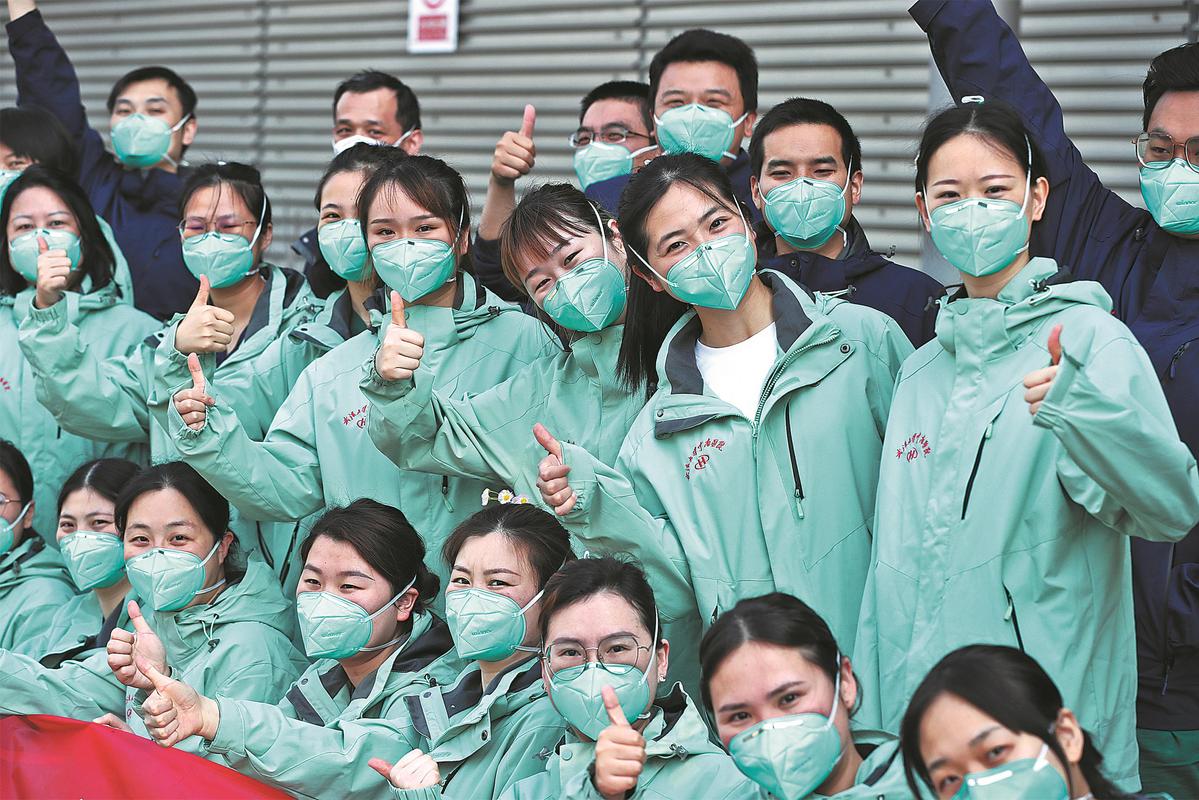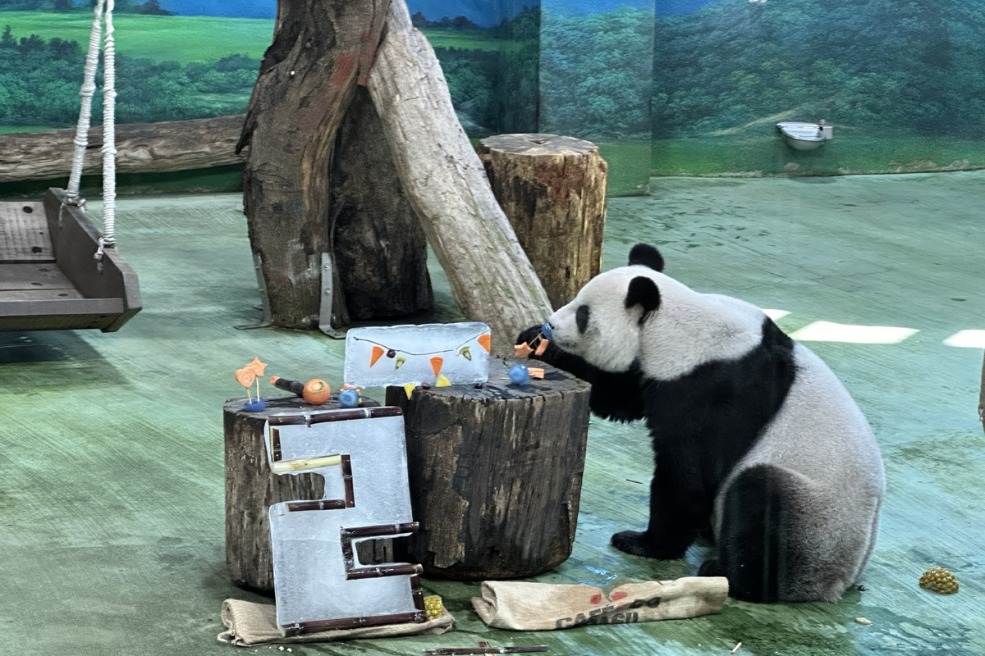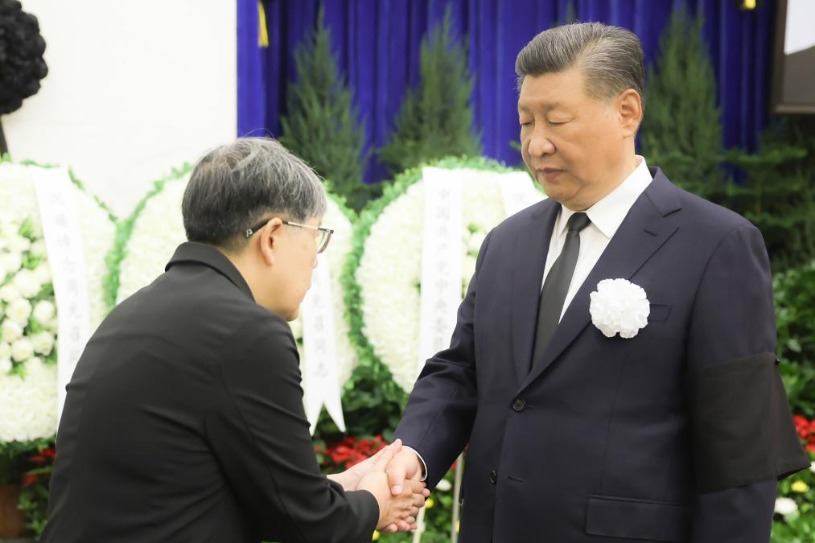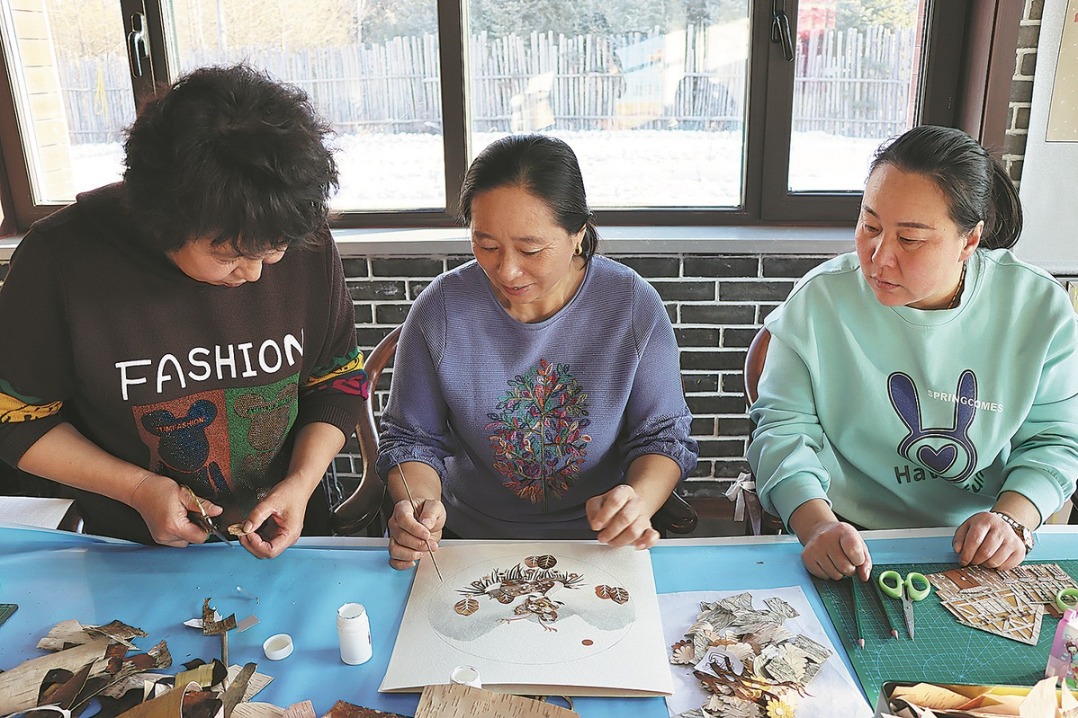Youth League marks centenary year


Cradle of young progressives still serves to inspire today's generation
Ahead of National Youth Day, which fell on Wednesday, groups of students visited a key site in downtown Beijing to commemorate a patriotic mass student movement formed a century ago.
The students headed to the Red Building, a four-story structure named after its red-brick walls and tiled roof, which used to stand on the main campus of Peking University.
The building was the setting for early Communist revolutionary activities, and a century ago, a group of young progressives pledged themselves to Marxism there and searched for ways to rejuvenate the Chinese nation.
The site became a cradle of the May Fourth Movement of 1919, which was formed on that date when about 3,000 university students in Beijing became its main force in opposing imperialism and feudalism.
The May Fourth Movement spurred the spread of Marxism in China, particularly among the young people.
In 1922, the Communist Youth League of China was established, and this year marks its centenary.
The building now hosts a display of cultural relics, photographs and graphics in rooms on the former campus to illustrate how revolutionary stories unfolded in Beijing during the early 20th century.
In one of the rooms, Zhang Xiaojun, a 20-year-old freshman, used her phone to take videos of photos and sculptures of young figures from the May Fourth Movement, sharing this footage with her classmates.
"These young students from the past were great. Of course, we young people in China today have our own strengths, as we are innovative, ambitious and also willing to devote ourselves to such causes," she said.
Zhao Qingyang, 44, a Communist Party of China member who works in Beijing, took his 10-year-old daughter to the exhibition twice recently, as he wants her to gain inspiration from such pioneering figures.
"At a difficult time in history, many visionary people spontaneously formed the Marxist belief, which supported them in founding a new China," he said.
Zhao added that members of the younger generation today also hold promise, as many of them play vital roles in fighting the COVID-19 outbreak and in relief work after natural disasters.
On April 30, 2019, Xi Jinping, general secretary of the CPC Central Committee, said in a speech at a ceremony in Beijing to mark the centenary of the May Fourth Movement that young Chinese are always in the vanguard of the drive to rejuvenate the nation.
He said the 100 years since the May Fourth Movement broke out in 1919 have witnessed the continuous struggle of generations of young Chinese, adding that they have devoted themselves to the great cause of revolution, development and reform led by the Party.
Xi has called a number of times for young people to establish great ideals, love their country, bear responsibilities and promote the spirit of the arduous struggle in the new journey toward the great rejuvenation of the Chinese nation.
Hao Ruiting, a professor of youth movement history from the Central School of Communist Youth League of China, said the May Fourth Movement reflected the strengths of young people and prompted them to pursue truth and progress.
The movement also paved the way for the founding of the Communist Party of China and the Communist Youth League of China, or CYLC, he said.
In 1919, the May Fourth Movement spurred the spread of Marxism throughout the country. Two years later, the CPC was founded, and the following year, under the Party's leadership and promotion, the Communist Youth League was born.
On May 5, 1922, the League held its first National Congress in Guangzhou, Guangdong province, with 25 members attending the meeting representing 5,000 others from across the country.
The League was founded on the 104th anniversary of Karl Marx's birth. Hao said, "This had an important implication-that it was a revolutionary group that believed in Marxism."
According to the League's Constitution, it is a mass organization for advancing young people under the leadership of the CPC. It also acts as a school, where a large number of young people learn about socialism with Chinese characteristics and about communism through practice. The League also assists the Party and acts as a reserve force for it.
The League's Central Committee works under the leadership of the CPC Central Committee. Local committees of the League work under the leadership of Party committees at corresponding levels and report to the League's higher-level organizations.
As of Dec 31, the League had more than 73.7 million members nationwide, according to statistics released by the CYLC Central Committee on Monday.
Some 43.81 million of its members are students, while the remainder are from enterprises, public institutions, urban and rural communities, social organizations, and in other fields, the data show.
The members are 14 to 28 years old. A branch of the League should have a minimum of three members, and the CYLC had 3.68 million organizations nationwide by the end of last year, according to the statistics.
Hao said, "Young people are the future and hope of a country and the vanguard of social reform," adding that as a Marxist political party, the CPC attaches great importance to educating and guiding young people and using their abilities.
Cultivating a large number of people capable of shouldering the "mission of the times" was stressed in a landmark resolution on the Party's key achievements and experience over the past 100 years.
The resolution stated that the cause of the Party and the nation requires the continuous efforts of Chinese communists over generations. The Party must ensure that this vitally important cause is advanced by future generations.
Wu Qing, head of the Institute of Communist Youth League Work Theory, said establishing the League was a major action by the CPC to mobilize young people to take part in the great transformation of Chinese society.
"This shows that the CPC fully recognizes the important position and role of young people in the development and progress of Chinese society," Wu said.
He added that over the past 100 years, the CPC has led the League in promoting China's youth movement, an example of the Party ensuring there are successors to carry forward the great cause of realizing national rejuvenation.
"The experience of the youth movement led by the Party shows that young people need to be better mobilized and organized," Wu said.
Young people needed an organization to serve as their core leadership to better unite them and promote development of the youth movement, he said. "Without this, the youth movement was bound to be lax and weak."
The League has the important task of organizing and mobilizing young people through its overall structure, Wu said. It has five levels of committees, ranging from central to township, as well as grassroots branches.
"Some outstanding students join the League while they are at middle and high schools," he said, adding that its members are "advanced elements" among young people, who will encourage their peers to work hard for the Party and the nation.



































